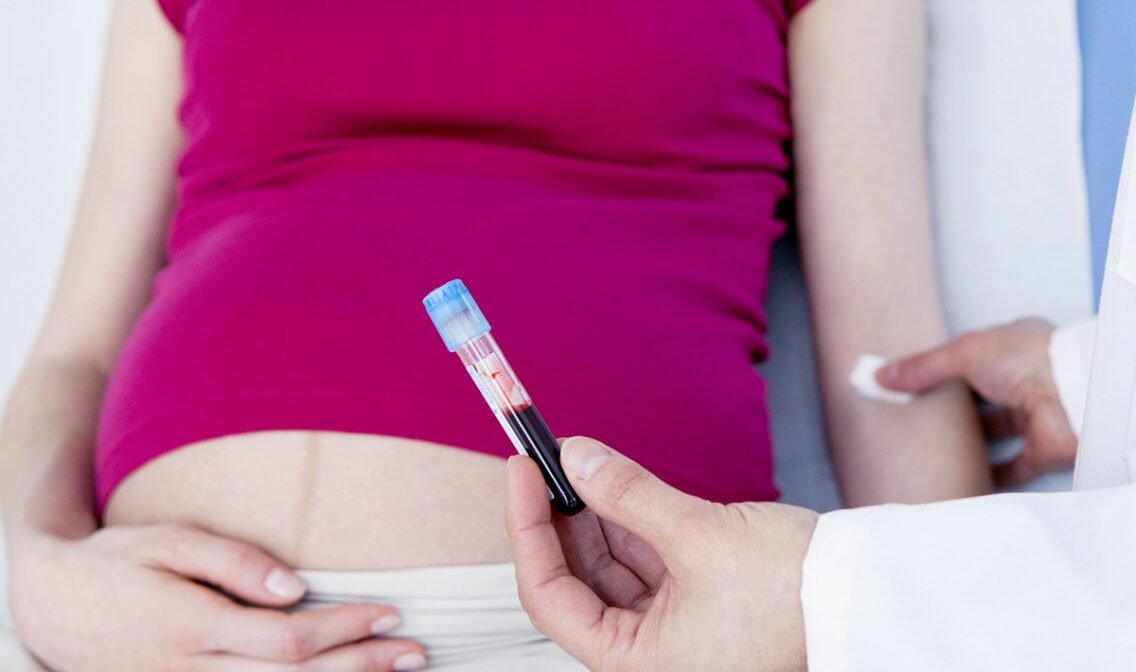
The Second Trimester of Pregnancy: Screening Tests
The Second Trimester of Pregnancy: Screening Tests

What are the second trimester genetic screening tests?
As a mama who’s navigated the rollercoaster of pregnancy, I get the mix of feelings that come with second-trimester genetic screening. These tests, though, are gems for understanding your little one’s well-being and prepping for their grand debut.
Anatomy Ultrasound (18-20 weeks): You’re heading into such an exciting time – between 18 and 22 weeks of pregnancy, you have this vital ultrasound scheduled. It’s a big moment for every mom-to-be! This scan is unique because it’s like a thorough health check-up for your little one. Your doctor will measure your baby, look lovingly at how their tiny organs are developing, and check the amniotic fluid cuddling your baby. It’s genuinely heartwarming to see how much they’ve grown already! This ultrasound gives you and your doctor a clear picture of your baby’s well-being. And the cherry on top? You may find out if you will have a little prince or princess.
Maternal Blood Screening (Triple or Quadruple Screen): It sounds like a mouthful but simply a blood test. It hunts for signs of conditions like Down Syndrome, Trisomy 18, and Trisomy 13. It might feel overwhelming, but it’s key for your peace of mind.
- Down Syndrome: This one’s about an extra chromosome 21, and you’ve probably heard of it. It might mean certain physical features and developmental delays. But kiddos with Down Syndrome are often bundles of joy and love, each with their wonderful spark. They may hit milestones at their own pace, but they bring a unique light to any family.
- Trisomy 18 (Edwards Syndrome): This less common one means an extra 18th chromosome. It can bring more serious health snags and developmental hurdles. Knowing early helps you and your healthcare squad craft the best care plan for your little treasure.
- Trisomy 13 (Patau Syndrome): Similar to Trisomy 18, it involves an extra 13th chromosome. It’s fairly rare and can lead to significant health challenges. An early heads-up is crucial for effective care for your baby.
Glucose Screening Test (24-28 weeks): This is about spotting ‘gestational diabetes’, a common hiccup during pregnancy. You’ll gulp down a super sweet syrup (think the sugariest drink you’ve ever had!). It might not be the yummiest, but it’s a quick and essential check on how your body handles sugar.
Amniocentesis (15-20 weeks, if advised): If your doctor suggests it, this test takes a wee sample of amniotic fluid. It’s like getting a sneak peek into your baby’s genetic secrets.
Cervical Length Measurement: A swift ultrasound to measure your cervix length, important for figuring out if there’s a risk of early labor. A shorter cervix might mean your baby could make an earlier entrance. It’s a fab way to be proactive and prepared!
NIPT (Non-invasive Prenatal Testing): Available from ten weeks, this simple blood test detects bits of your baby’s DNA in your blood. It screens for various genetic conditions, giving early insights into your baby’s health. It’s a breeze and can be done in your first or second trimester.
RH Factor Screening: Essential to see if your blood and your baby’s blood play nice together. If you’re RH negative, it means your blood is missing a certain protein that might be in your baby’s blood (thanks to their dad). You might need a RhoGAM shot to dodge complications if there’s a mismatch. It’s a quick, easy test for the safety of you and your baby.
These tests are about being clued in and ready for your baby’s unique needs. They’re vital in your journey, helping you and your healthcare team plan the best care for your little one. Also, in this beautiful trimester, your baby is starting to look like a baby! Their facial features are coming into focus – you’re getting closer to seeing that adorable face for the first time. And those tiny fingers and toes? They’re getting more defined by the day, almost as if they’re practicing for that first sweet grip of your finger.
Note: Quick heads-up on that glucose test you’ve got coming up in your second trimester. How do they say fast for about 8 – 14 hours before the test? There’s a little something they might not tell you: be super careful with what you eat even before you start fasting.
Here’s my little story: I had oatmeal for breakfast, feeling good about my healthy choice, and then I started my fast at 8 PM for the test the next day. And guess what? I completely flunked that first glucose test! I was puzzled until I did a bit of Googling. It turns out that some foods, like oatmeal, can mess with your blood sugar levels way longer than you’d think – like a whole day or two.
So, what’s the takeaway? I had to sit through the three-hour glucose test and trust me; it’s exactly as much fun as it sounds (spoiler: it’s not). Here’s some mom-to-mom wisdom: Pay close attention to your eating before your glucose test. It’s not just the fasting that matters; it’s also what you ate that’s still hanging out in your blood from the day before. Remember this tip: stay smart, and take great care of yourself and that little one!
When Should You Seek Medical Help?
Navigating the second trimester can be a mix of excitement and nerves, right? So, here’s a little heads-up on when it’s a good idea to give your doctor a ring:
- If you’re feeling some unusual abdominal pain or cramps that don’t feel right.
- Have you noticed any vaginal bleeding or strange discharge? It is worth a chat with your doctor.
- Feeling like your baby isn’t moving as much as before. Here’s a tip: relax in a comfy spot and count any kicks, rolls, or jabs. Less than 10 movements in 2 hours? Time to call the doctor.
- Regular contractions or changes in your discharge, coupled with pelvic pressure? That’s a signal to reach out.
- Are you feeling sick, especially with a high fever? Not something to ignore.
- Shortness of breath that’s new or different for you.
- Are you experiencing regular pain or tightness in your lower belly or back? Let’s get that checked.
- You are feeling a lot of pressure down there in your pelvic area or vagina.
- Can’t keep food down because of severe morning sickness? Your doctor needs to know.
- Severe headaches, blurred vision, or dizziness – these can be serious.
- Notice excessive swelling, especially in your face or hands.
Remember, you know your body best. Trust those instincts and stay tuned to what your body tells you. When in doubt, a quick call to your healthcare provider is always a smart move.






